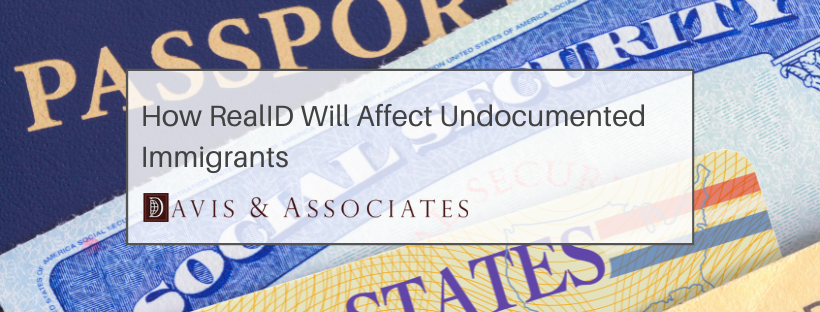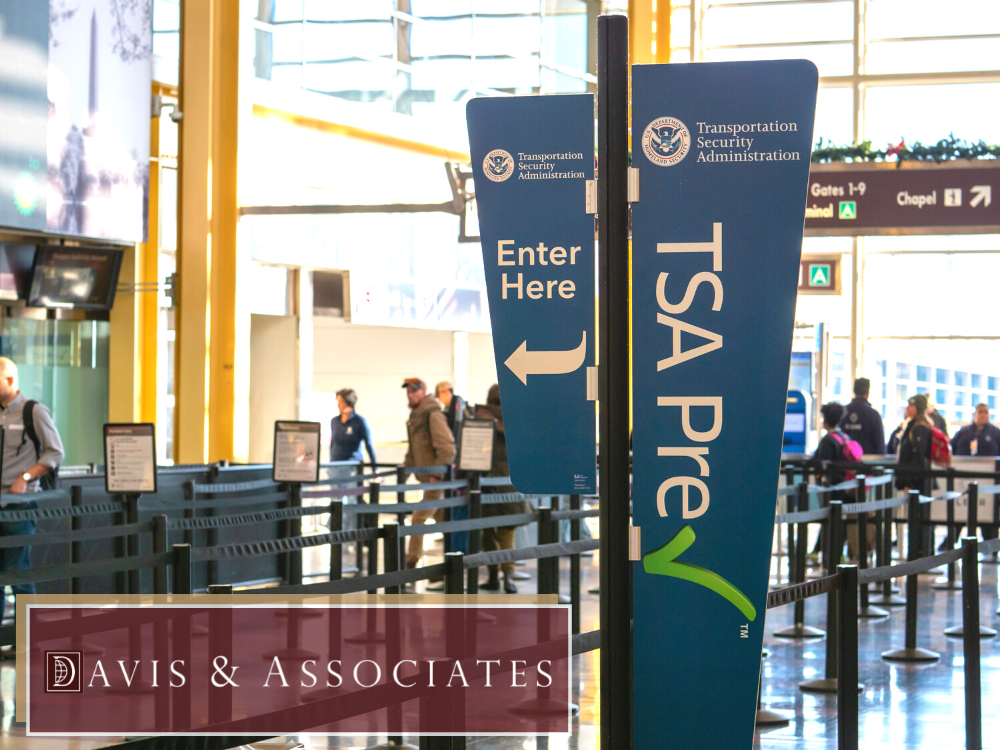
Real ID Requirements and How They Will Affect Undocumented Immigrants
It is difficult to ascertain exactly how many undocumented immigrants reside in the United States. Estimates can vary according to the methodologies used, as well as the politics of the groups in charge of the counting. The real number is likely to lie somewhere between 10.5 million and 12 million, which constitutes around 3.2 to 3.6% of the nation’s population.
Undocumented immigrants are those who have either entered the country without going through the appropriate channels or have outstayed the duration of their visa. They, therefore, do not possess valid visas or immigration documentation. Although it is possible for an undocumented immigrant to obtain legal status, they are unlikely to possess an acceptable form of identification for use in the US, such as a driver’s license, social security card, or US-issued passport.
This can make certain aspects of their lives challenging, as it will be harder to travel, gain employment, purchase a vehicle, or access healthcare without a valid form of ID.And new changes coming into effect will have an even greater impact on undocumented immigrants, in the form of the Real ID Act. The passing of this law is designed to establish a minimum security standard for the issuance of identification, making identity documents more consistent and secure.
Read on to learn more about the Real ID requirements and how they will affect undocumented immigrants across the US.
What is Real ID?
 The Real ID Act presents an updated system of identification across the United States, with an aim to establish consistent and high standards of security with regards to the issuance of identity documents. From the deadline of May 7th, 2025, US citizens will be required to present a Real ID for various official purposes. These purposes include:
The Real ID Act presents an updated system of identification across the United States, with an aim to establish consistent and high standards of security with regards to the issuance of identity documents. From the deadline of May 7th, 2025, US citizens will be required to present a Real ID for various official purposes. These purposes include:
- Accessing certain federal buildings
- Boarding domestic flights
- Entering nuclear power plants
The Real ID Act applies to drivers licenses and identification cards, and various federal agencies will be prohibited from accepting any such form of identification that does not meet the standards set by this new system.
A Real ID document or card will look different depending on the state the holder is from. Each state will issue Real IDs that feature a particular design unique to that state.
Who is eligible for Real ID?
In order to obtain a Real ID, an individual must provide proof of identity, state residency, and their current legal presence in the United States. This means an undocumented immigrant will be unable to apply for a Real ID, although they may still be able to apply for a drivers license or state identification that does not meet Real ID standards.
How do you obtain a Real ID?
In order to get a Real ID, individuals will need to apply through their state’s driver’s licensing agency. The exact documentation the applicant will be required to show may vary from state to state, but at a minimum will need to show proof of full legal name, residence, lawful status, and social security. Some states may impose additional requirements. After providing all the necessary documentation, applicants will have their identity verified and be issued a Real ID-compliant driver’s license or state identification card.
Can you fly domestically without a Real ID?
From May 2025, it will not be possible to board a domestic flight using a non-Real ID driver’s license or state identification card as the primary form of identification. However, if a passenger does not possess a Real ID, there are other forms of identity that will be accepted. This list includes US passports and permanent residence cards. Undocumented immigrants may therefore be able to fly domestically as long as they hold an approved form of identification on this list.
How will Real ID affect undocumented immigrants?
Once the deadline arrives, the Real ID Act will change the way undocumented immigrants can present identification for many purposes. If an undocumented immigrant currently holds a non-Real ID driver’s license or state ID card, this will not be accepted for domestic travel or accessing certain buildings.
Any other locations that require members of the public to show identification, such as bars and restaurants, will not mandate a Real ID compliant form of identification. Non-Real ID compliant identity documents can still be used for purposes other than the ones laid out in the new law.
Contact Davis & Associates For More Information
If you would like to learn more about the upcoming Real ID requirements and how they will affect you, get in touch with Davis & Associates today. Schedule a free consultation to discuss your situation and how we can help you.
About Davis & Associates:
Davis & Associates is the immigration law firm of choice in Houston & North Texas including Dallas, Fort Worth, Plano, Frisco, McKinney and surrounding areas. Their attorneys provide expert legal counsel for all aspects of immigration law, including deportation defense, writs of habeas corpus and mandamus, family-sponsored immigration, employment-sponsored immigration, investment immigration, employer compliance, temporary visas for work and college, permanent residence, naturalization, consular visa processing, waivers, and appeals. Attorney Garry L. Davis is Board Certified in Immigration and Nationality Law by the Texas Board of Legal Specialization.
Dallas Contact Info:
Address: 17750 Preston Road Dallas, TX 75252
Phone: (469)957-0508
Houston Contact Info: Address: 6220 Westpark Dr, Suite 110, Houston, TX 77057
Phone: (832) 742-0066
